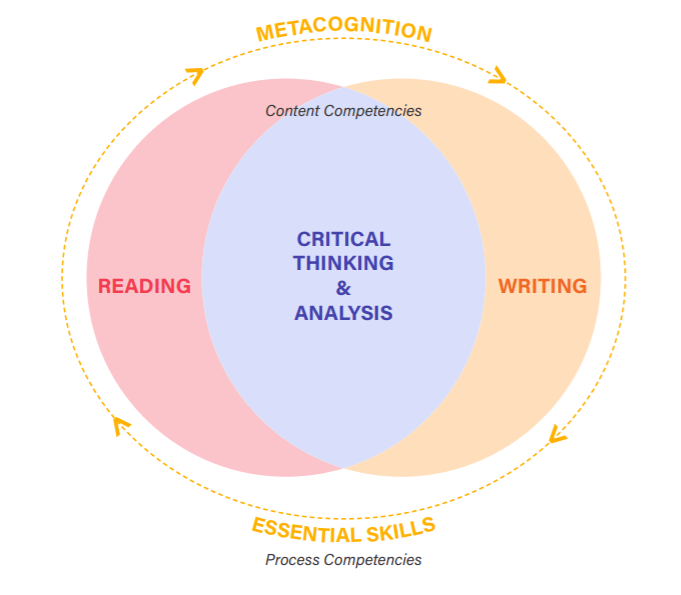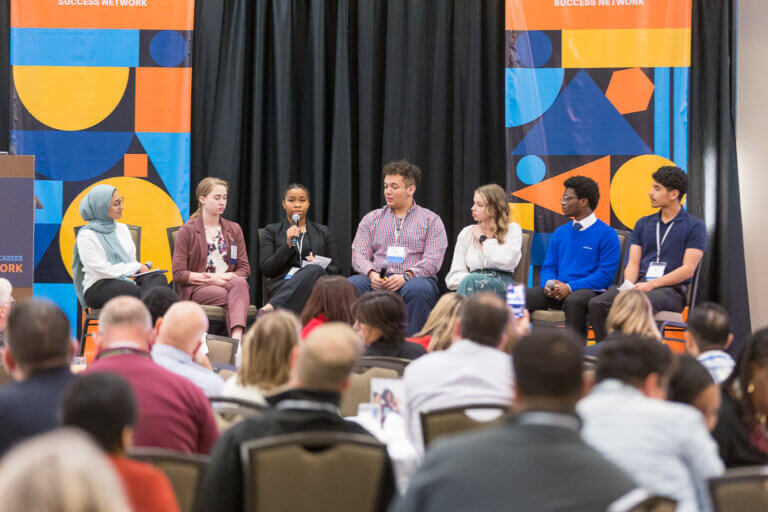Enacted in 2016, the Postsecondary and Workforce Readiness (PWR) Act includes a set of strategies to support Illinois students in their transition from high school to postsecondary education, workforce training, and careers. A significant barrier to postsecondary persistence and completion is remedial education. Students enrolling in remedial courses complete fewer courses than non-remedial peers and have substantially lower outcomes related to graduation rate, advancement rate, and credit accumulation. While Illinois has established a statewide implementation system for transitional math, more than 20% of Illinois high school graduates entering Illinois’ community college system also require remedial English courses in reading and communications courses1.
To increase the number of high school graduates placed into college-level reading and communications courses without the need for remediation, the Illinois State Board of Education (ISBE), Illinois Community College Board (ICCB), and Illinois Board of Higher Education (IBHE) recently adopted the Statewide Transitional English Course Parameters, Competencies, and Policies. This document will guide local partnerships between high schools and community colleges necessary to implement transitional English instruction successfully. Transitional English courses can be used as a fourth-year language arts class to meet state and local high school graduation requirements, either as a new course offering or through the transformation of an existing English 4 course.
In fall 2019, ISBE, ICCB, and IBHE convened a Competency Development Group consisting of high school administrators, high school English teachers, community college and university administrators, community college and university English faculty, and state agency representatives to develop the statewide competencies (see the Competency Development Group membership list attached as an Appendix). The Competency Development Group was staffed and facilitated by EdSystems, who researched existing models, provided drafts of material, collected feedback, and incorporated identified revisions into subsequent drafts for consideration.
From December 13, 2019, to March 27, 2020, the Competency Development Group met via five webinars and two in-person meetings to develop general parameters for transitional English courses, competency statements reflecting broad learning goals for these courses, and a set of key performance indicators for each competency statement. The group’s work included extensive analysis and consideration of secondary English language arts standards, learning objectives, and instructional approaches in pilot transitional English courses and postsecondary remedial courses, and best practices within Illinois and across the nation.
Transitional English courses cover content competencies in reading, critical thinking and analysis, and writing. In addition, the courses integrate metacognition and essential skills competency domains throughout the transitional English instruction.

What’s next? This spring, stage agencies will designate a panel to approve transitional English courses for statewide portability, and kick-off a workgroup to advise on curriculum and professional development supports. This workgroup will build from materials currently used by sites implementing transitional English, including recipients of the ICCB English Pilot Grant awards, to support teachers in aligning their resources with the statewide competencies.
Learn More About Transitional English
On Friday, February 19, 2021, representatives for the Competency Development Group presented an overview webinar of the Statewide Transitional English Course Parameters, Competencies, and Policies document.
At the 60 by 25 conference, Dr. Ginger M. Reynolds and Heather Penczak from EdSystems hosted a conversation with representatives from Sauk Valley Community College and Illinois Central College on insights, promising practices, and lessons learned from their Local Advisory Panels for Transitional Instruction.
Together with our school district, college, and state agency partners, we look forward to continued efforts to contribute to an education system that supports more students to successfully transition from high school into postsecondary education and beyond.


